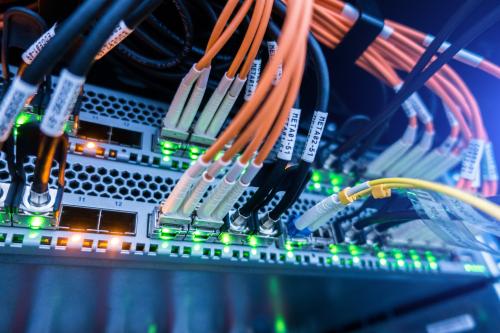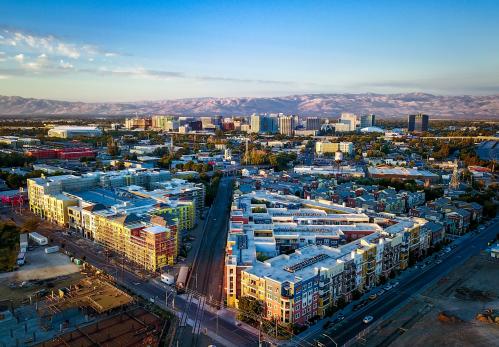The COVID-19 pandemic has affirmed how important broadband internet access is to the American economy, both today and in the decades to come. Now, with a new administration taking office in Washington, what policies should the Federal Communications Commission (FCC) prioritize?
Part 1 of this two-part series discussed three problems relating to the FCC’s Universal Service mandate, which the Trump administration’s FCC failed to address and Biden’s FCC must now grapple with. This second piece outlines three institutional and strategic problems that Biden’s FCC will have to resolve as well.
Amid global hacks, cybersecurity has gotten little attention
In the wake of December’s Russian hacks of various internet networks and facilities, then-Chairman Ajit Pai said the FCC must take action to ensure U.S. networks are not vulnerable to security threats. As TR Daily reported, Pai criticized his predecessors for not taking such action sooner: “When I came into office, I said that’s not acceptable. We have to recognize the threat for what it is.”
But this is rewriting Pai’s history on the issue. As a commissioner, he criticized his predecessor for adopting cybersecurity measures, arguing that the FCC lacks “the expertise and authority to dive headlong into this issue” and that the FCC’s role should only be “consultative.” One of Pai’s first actions as chairman was to cancel an inquiry begun by Obama-era Chairman Tom Wheeler into the development of security practices for 5G networks and technologies that sought input on how best to incorporate confidentiality, integrity, and availability into next-generation networks and assess the costs and benefits of managing security threats in 5G environments. Pai never explained why asking such questions was not in the public interest.
That was not the only such case. Pai followed up on that position by reversing Wheeler’s order to address known vulnerabilities in the emergency alert system, pulling cybersecurity considerations out of the internet-protocol-based TV broadcast proposal, halting the cybersecurity provisions in the FCC’s broadband privacy order, and opposing the inclusion of cybersecurity in communications outage reporting.
During his four years as chairman, Pai maintained the view that the FCC had no authority in the cybersecurity space. It is telling that in his 14-page list of achievements, there are zero references to the kind of threat the Russian hack entailed. The only actions involved banning the purchase or replacing of existing Chinese-made equipment on American telecommunications networks.
Now, as our economy and society depend even more on the security of our networks—and as the Russian hack demonstrated even greater vulnerabilities—the FCC is even further behind in having the technical and legal foundation for addressing the issues.
The U.S. has fallen behind in 5G leadership
During the last four years, there was bipartisan consensus that global 5G leadership was an important goal for the country. Unfortunately, the FCC never appeared to understand what that leadership would actually entail, sometimes citing irrelevant factors, while Pai said in 2018, “I think the Potter Stewart standard applies, which is that you’ll know it when you see it…I don’t think there is any metric.”
Charting a path for global 5G leadership is not easy, nor does it have a single solution. It involves the whole ecosystem of devices and applications that sprout from the 5G network, which itself requires a greater commitment to research and development. Of course, allocating spectrum to mobile carriers who want to deploy 5G networks plays a key role, but not all spectrum bands have the same value for 5G. Pai’s early efforts to allocate spectrum focused on the so-called “high-band” spectrum, but as an industry report concluded, “mid-band” spectrum will prove decisive for world-leading 5G networks. As that report noted, on average, other countries will make over four times more licensed mid-band spectrum available than the U.S. will by the end of 2020. To be fair, Pai did eventually auction some mid-band spectrum, but wasted at least a year in the process, putting us further behind.
The race for 5G leadership is underway and, while the United States is not starting from nothing, we are not where we could have been and still lack a coherent strategy to get to where we need to be.
A data deficit in the FCC
When Pai became FCC chairman in 2017, he moved the Commission’s economists into a new, centralized Office of Economic Analysis, saying that it was “time to restore the place of economic analysis at the FCC.” But despite that sentiment, in practice, the role of the economics team appeared to justify—rather than fundamentally shape—FCC decisions. In other words, one could easily predict the outcome of all Pai’s orders based on political calculations—not economic analysis.
Indeed, what is remarkable about the last four years was the degree to which the FCC decided to ignore its data-gathering function, which is the underlying ingredient for any economic or policy analysis. This can be illustrated in three areas:
Mapping. As Congress recognized on a bipartisan basis, the FCC’s broadband availability maps—which it uses to allocate billions of dollars for universal service—is inaccurate on many levels. This has led to the FCC spending money where it is not necessary (such as to wealthy homes adjacent to a golf course in Los Angeles) while missing unconnected homes because it declares an entire ZIP code “served” if just one home in an entire census block has broadband access. Further, the FCC relies on data from internet service providers without ever auditing that data. Pai acknowledged some shortfalls in this system, but spent money based on bad data anyway—arguing that he should not delay and Congress needed to provide funds for improved mapping. Congress has now done so, but it will be the task of the next FCC to develop an improved map.
Network performance standards. The COVID-19 pandemic forced our economy and society to run a massive and unplanned experiment in “remote everything.” One might have hoped that the FCC would have used the results of that experiment to reexamine the network performance standard (below which, broadband is deemed unavailable), the performance standard that subsidized networks are required to perform above, and the standard for eligibility in the Lifeline program for low-income Americans. The FCC spends billions every year based on these standards, but rather than seize the opportunity to evaluate an incredibly rich new set of data, the FCC leadership performed no independent studies and simply praised overall network performance.
Misinformation. Right now, the most urgent task of the federal government is to efficiently distribute the COVID-19 vaccine. But soon, the government will have to evaluate why the virus spread more widely and cost more lives per capita than in many other developed countries. It is likely that one cause will be the massive amount of misinformation about the disease that caused millions to act in ways that hurt themselves and others. The FCC, which has the responsibility of assuring that the public airwaves are used in the public interest, turned a blind eye to the many ways those airwaves were being used to harm the public during the pandemic. For example, in February 2020, when the Centers for Disease Control and Prevention was warning Americans that COVID-19 was a serious public health threat, people such as Rush Limbaugh used the public airways to spread misinformation and conspiracy theories. While the FCC must not act in violation of the First Amendment, it should take actions to protect public health. Biden’s FCC will have to examine how the spread of such harmful information can be minimized.
With broadband connectivity only increasing in importance amid the COVID-19 pandemic, the Biden FCC will have plenty on its plate. It is unrealistic to think that any FCC will leave its successors with a full complement of problems solved. It is unfortunate, however, that so many of the biggest telecommunications-related impediments to the American economy and society were ignored or made worse in the last four years.







Commentary
Biden’s FCC must attend to cybersecurity, 5G development, and data-gathering issues that Trump’s FCC ignored
February 2, 2021